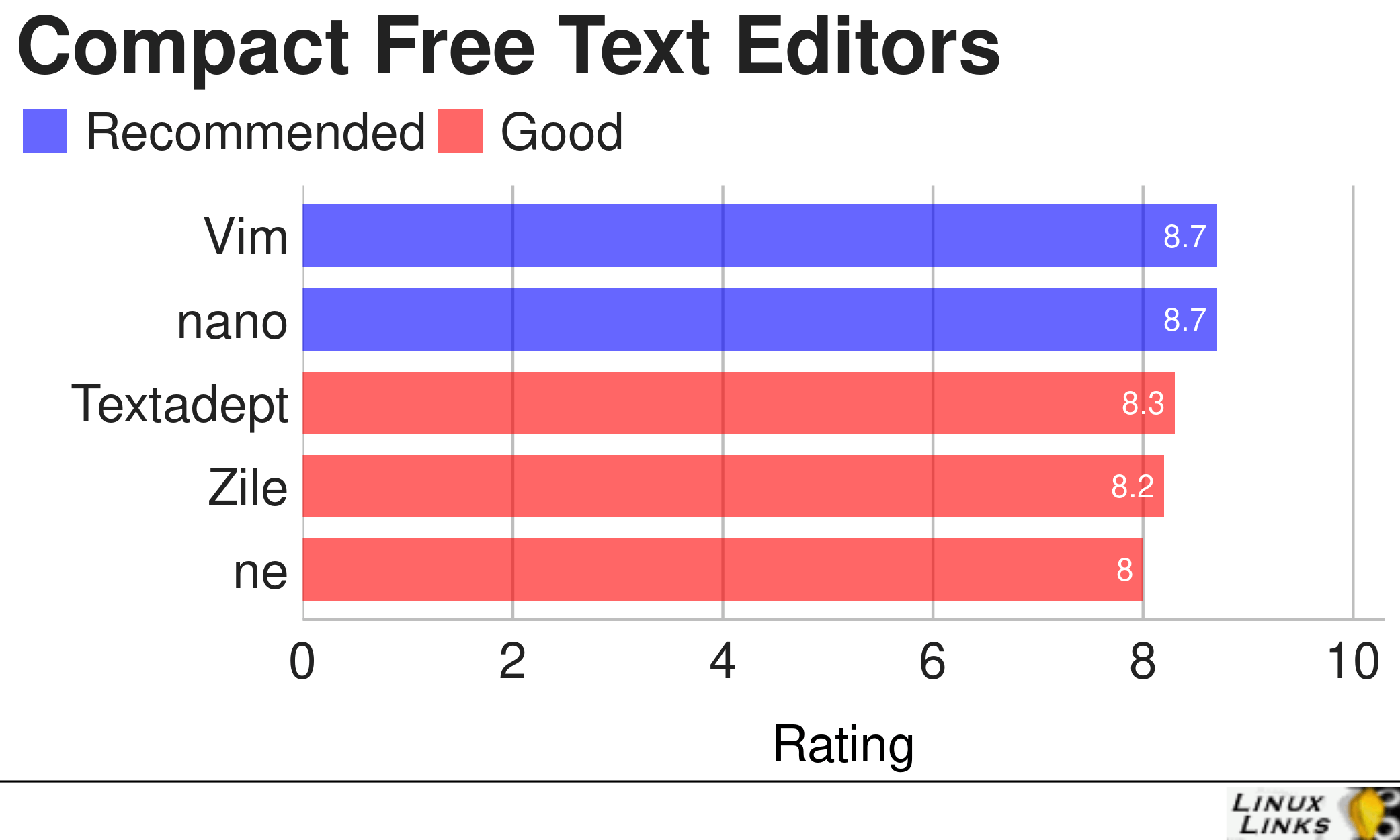Last Updated on May 26, 2022
A text editor is software used for editing plain text files. This type of software has many different uses such as modifying configuration files, writing programming language source code, jotting down thoughts, or even making a grocery list. Given that editors can be used for such a diverse range of activities, it is worth spending the time finding an editor that best suites your preferences.
Whatever the level of sophistication of the editor, they typically have a common set of functionality, such as searching/replacing text, formatting text, importing files, as well as moving text within the file.
All of these text editors are console based applications which make them ideal for work on remote machines. Textadept also provides a graphical user interface, but remains fast and minimalist.
Console based applications are also light on system resources (very useful on low spec machines), can be faster and more efficient than their graphical counterparts, they do not stop working when X needs to be restarted, and are great for scripting purposes.
We have picked our favourite open source text editors that run on the console.

Let’s explore the 5 text editors. For each application we have compiled its own portal page, providing a screenshot of the software in action, a full description with an in-depth analysis of its features, together with links to relevant resources.
| Compact Text Editors Great for Remote Editing | |
|---|---|
| Vim | Advanced text editor that seeks to provide the power of the editor 'Vi' |
| nano | Curses-based text editor. It is a clone of Pico |
| Textadept | Fast, minimalist, and extensible cross-platform text editor for programmers |
| Zile | Zile Is Lossy Emacs (Zile) is a small Emacs clone |
| ne | Full screen text editor |
 Read our complete collection of recommended free and open source software. Our curated compilation covers all categories of software. Read our complete collection of recommended free and open source software. Our curated compilation covers all categories of software. Spotted a useful open source Linux program not covered on our site? Please let us know by completing this form. The software collection forms part of our series of informative articles for Linux enthusiasts. There are hundreds of in-depth reviews, open source alternatives to proprietary software from large corporations like Google, Microsoft, Apple, Adobe, IBM, Cisco, Oracle, and Autodesk. There are also fun things to try, hardware, free programming books and tutorials, and much more. |
